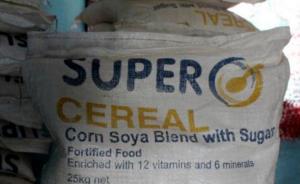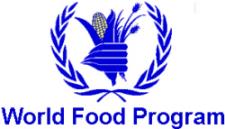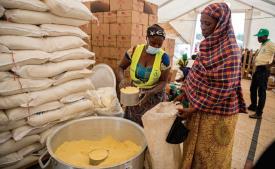
 In March 2019 The World Food Program, recipient of the 2020 Nobel Peace Prize, was inadvertently responsible for an extensive outbreak of food poisoning. The event resulted in 278 cases with five fatalities. Super Cereal, a combination of wheat, corn, soybean protein fortified with minerals and vitamins blended into a flour was responsible for the outbreak. An intensive investigation into the cause was conducted, led by Professor Chris Elliott of the Queen’s University Belfast, Institute for Global Food Security, assisted by the WHO, the Ministry of Health in Uganda, the U.S. CDC and the FDA.
In March 2019 The World Food Program, recipient of the 2020 Nobel Peace Prize, was inadvertently responsible for an extensive outbreak of food poisoning. The event resulted in 278 cases with five fatalities. Super Cereal, a combination of wheat, corn, soybean protein fortified with minerals and vitamins blended into a flour was responsible for the outbreak. An intensive investigation into the cause was conducted, led by Professor Chris Elliott of the Queen’s University Belfast, Institute for Global Food Security, assisted by the WHO, the Ministry of Health in Uganda, the U.S. CDC and the FDA.
Analysis of the implicated batch of Super Cereal demonstrated the presence of tropane alkaloids, including atropine and scopolamine. Toxin present at sublethal levels were attributed to the presence of datura seeds. The affected nutritional supplement emanated from a plant in Turkey and reflected deficiencies in quality control. Datura stramonium is native to India, but occurs in the U.S. as jimson weed, in addition to the E.U. and Asia. Seeds may contain a high levels of scopolamine, an alkaloid responsible for stimulation of parasympathetic receptors.
 Super Cereal manufactured by a plant in Austria was found to be innocuous. Following identification of the affected batch, remaining Super Cereal derived from plants other than Turkey was released and consumed without untoward effect. Investigation showed that the blending plant in Turkey shipped product to Algeria, Tanzania, and Kenya that in turn distributed potentially affected product to Uganda, the Central African Republic, Rwanda and Somalia. It is evident that many cases of toxicity were not detected in nations receiving the contaminated product.
Super Cereal manufactured by a plant in Austria was found to be innocuous. Following identification of the affected batch, remaining Super Cereal derived from plants other than Turkey was released and consumed without untoward effect. Investigation showed that the blending plant in Turkey shipped product to Algeria, Tanzania, and Kenya that in turn distributed potentially affected product to Uganda, the Central African Republic, Rwanda and Somalia. It is evident that many cases of toxicity were not detected in nations receiving the contaminated product.